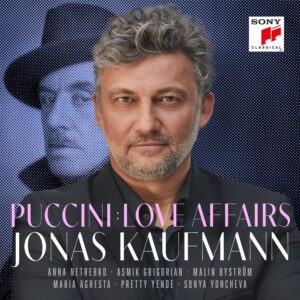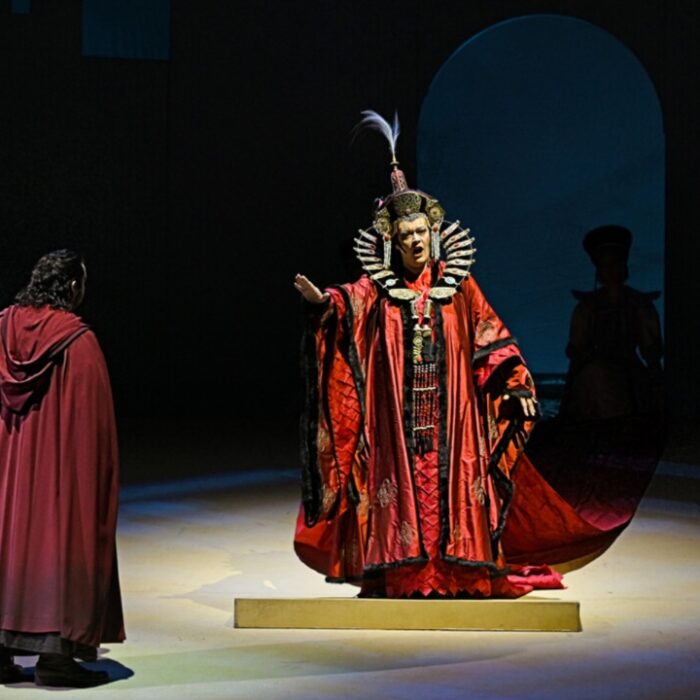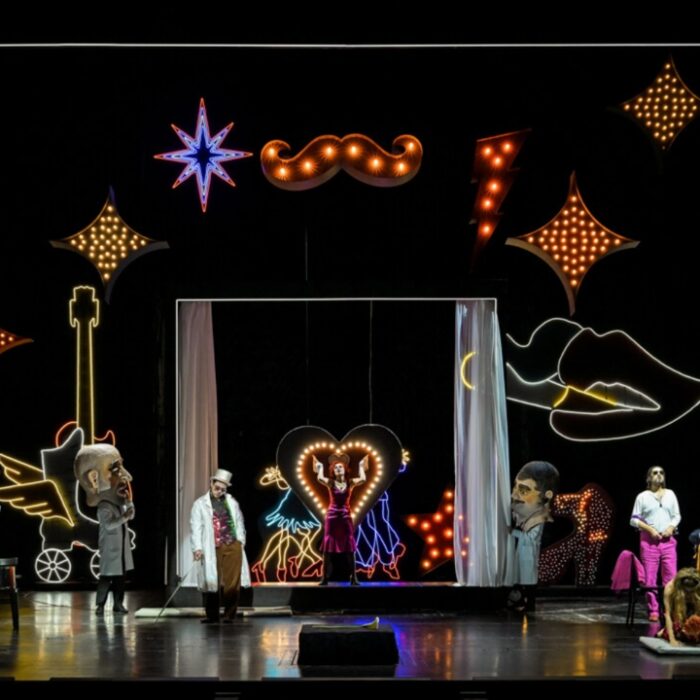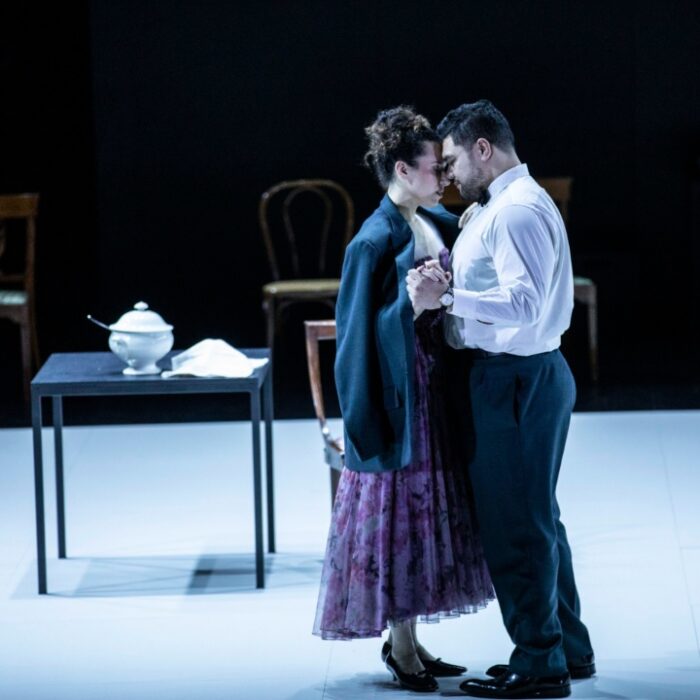
CD Review: Jonas Kaufmann’s ‘Puccini: Love Affairs’
By Bob Dieschburg“Puccini: Love Affairs” is Sony Classical’s response to the marketing of the centenary of the Lucchese composer’s death. Sadly, instead of a complete opera recording, it is yet another compilation (in the fullest sense!) of familiar duets, and an aria from “Tosca” and “La Bohème” each.
Jonas Kaufmann – its titular singer – represents the main selling point. The German tenor is his usual self, both suave and nonchalant, albeit constrained vocally to some unusual huskiness, and a propensity to use the voix mixte instead of his signature muscular sound. Unfortunately, his prolonged efforts do not hold their own, as his multiple partners fail to raise the proverbial heat above lukewarm temperatures at the very best. His “Love Affairs,” if anything, are a tepid postlude, rather than an eruptive celebration of Puccini’s romantic genius.
An Affair à Six
The title alludes to Puccini’s many infidelities which have repeatedly put his marital relationship to the test: from the uncovered liaison with the mysterious Cori – nicknamed “La Torinese” – to his tragically, and unjustly presumed affair with the young housekeeper, Doria Manfredi. Each has, to some extent, reverberated in his operas, and the relationships between tenor and soprano in particular.
More prosaically, the album reprises the template of Roberto Alagna and Aleksandra Kurzak’s “Puccini in Love” (2018; also on Sony Classical). But Kaufmann, not content with just one duetting partner, took it upon himself to engage six of the world’s leading sopranos for a different role each. The results, far from being fortuitous, appear mixed: Netrebko is a very matronly Manon Lescaut whose frivolity barely translates to anything more than a pastosely layered emission, particularly in the lower register. Similarly, Sonya Yoncheva’s Tosca remains strangely nondescript, and Maria Agresta – as Butterfly – does not nearly display the urgency Angela Gheorghiu so eloquently conjured in EMI’s 2008 recording of the complete opera (opposite Kaufmann, as well). By far the most idiosyncratic are both excerpts from “La Fanciulla del West,” brought to life by Malin Byström’s intrinsic vulnerability, and endless compassion clad in a steely timbre (not unlike Mara Zampieri), and intelligent phrasing.
“The Boy of the Golden West”
Johnson is also Kaufmann’s best role, as it significantly deviates from the Puccinian youthfulness ascribed to the composer’s earlier operas. He relies on a certain playfulness, liberties perhaps in phrasing the lines which one would not typically expect from an Italianate tenor. The distribution of accents, for instance, in the ariose “Quello che tacete”, or the performative and suave “Avrei voluto salire… nella vostra capanna” are discretionary concessions to a more logocentric, if not Wagnerian, approach.
For obvious reasons, this proves less effective in the triad of “La Bohème,” “Tosca,” and “Madama Butterfly,” where the vocal limits are less easily camouflaged. In “O soave fanciulla” (with the alluring Pretty Yende) Kaufmann resorts to a slightly odd voix mixte on the culminating “amore;” conversely, the high C in “Che gelida manina” rings freely, albeit with considerably less luminosity than in “Romantic arias” from 2008.
As Cavaradossi, he generously spins the legato from “s’affisa intero” to the beautifully transitioned “occhio all’amor soave.” Yet the vocal profile does not match the painter’s hot-blooded exuberance, and while flawless otherwise the singing’s gently toned-down character feels suspiciously disengaged. Part of the malaise stems from the recording conditions: Asher Fish’s orchestra was taped separately from the singers, making every attempt to achieve deeper levels of dramatic syntony a painfully taxing enterprise. It is best in the quasi-symphonic backdrop of “Madama Butterfly,” where the Israeli conductor effectively dwells on chromatic variability.
A Marketing Affair
Not unexpectedly perhaps, Kaufmann’s compilatory love affairs do not match the artistic craftsmanship of his earlier publications, notably his 2015 monograph (with Antonio Pappano). Gone is the seductiveness with which Kristine Opolais appeased his intemperate Des Grieux; gone is also the roundness, let alone the spontaneity of his Rodolfo. Instead, there is a tendency away from the mellifluous towards the slightly choppier, if not mannered, enunciatory style of the dramatic heavyweights, Johnson and “Il Tabarro’s” Luigi in particular.
It suits him well, and despite Kaufmann’s recent health concerns, “Puccini: Love Affairs” is a powerful reminder of his enduring vocal charisma, and ability to draw its very limited set of antiheroes in finely shaded chiaroscuro. But overall, it is not enough to evince the lingering suspicion that market conditions have yet again taken precedence over the quality of execution – after all, the centenary does not just represent a cultural opportunity, but also a monetary one.


